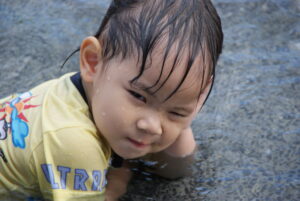
Regardless of race, gender, or socio-economic status, all children possess the potential to excel in one or more areas. This is backed by decades of work done by researchers in the field of gifted education.
If this is true, then why do your children do not seem to possess anything beyond average abilities? Why are they average in their performance and learning speed? Are your children destined for a life of mediocrity?
Not so. If your children have tried many activities and done tests for giftedness, but doesn’t seem to have the potential to excel, there might be something limiting the development process.
Limited Exposure to Different Activities
If Newton was never exposed to the world of science, or Picasso had never held a brush, the world would have turned out very differently. One reason why your children may not seem to be exhibiting any talents is that the activities they participate in are too similar and does not cover where their potential lies.
For example, if you or your spouse are talented in a certain area such as music, sports, or art, the natural tendency is to sign up your children for similar programs. This is generally a good way to start, as you can demonstrate your passion and skills in those areas. However, you should also keep in mind that their children may not show interest or talent in the same area and that it might be better for both you and your children to try new things that might be more aligned with their interests.
Work with your children, provide them with varied experiences, and find out what interest them. By allowing your children to pursue activities they are interested in or passionate about, help them develop intrinsic motivation that is rarely seen when they pursue your passion.
Unfair Comparison With Siblings and Peers
As much as one would like to claim otherwise, chances are you will compare your children’s abilities within the extended family and peers. From the age when they start speaking or walking to their school results, peer benchmarking is a simple and common method to determine where your children stand in a particular area.
However, making such comparisons can do more harm than good. If you are overly concerned over their different developmental process when compared with their siblings and peers, you may miss their unique gifts and talents. They also may lose confidence in their own abilities and choose not to “perform”. Over time, they develop coping mechanisms that may result in underachievement.
Afraid To Be Different
Being gifted can be a double-edged sword. Gifted children not only think differently from their peers, but may also have a maturity level higher than their chronological age. As a result, they may find it challenging to make friends in school.
So in order to fit in, some gifted children may intentionally underperform to avoid “standing out”, especially in cultures or situations where conformity is prefered. In such situations, children may also “hide” their gifts and talents to protect themselves from being excluded and shunned.
Children who are Twice-Exceptional
Twice-exceptional children have the potential to be gifted in some areas but may also have learning disorders. In some cases, a learning disorder might be preventing a talent from showing. For example, your children’s dysgraphia (finds it hard to write within a defined space) may be coexisiting with their talent for poetry. If you only focus on the messy handwriting, their talent will be overlooked.
Helping your children to manage their learning disorders are important. However, if your children are twice-exceptional you would also need to recognise what they can achieve and the improvements that they have made. You should consider what are the areas that they have interest and potential. This requires a change in mindset.
Although GERC doesn’t perform clinical diagnosis during our consultations sessions, we would raise this as a possible issue if we detect signs of learning disability in a child. Once there is a definite diagnosis by a clinical physician, we can advise on the available support you can provide for your child.